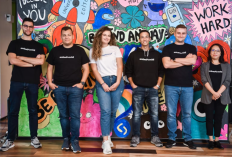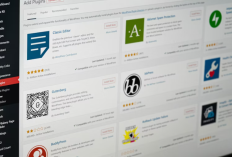AI Tools Helping Small Businesses Compete Globally

Sleepless Nights-Khachik Simonian-https://unsplash.com/
AI Tools Helping Small Businesses Compete Globally
When a small coffee shop in Jakarta began using an AI-driven inventory app, its owner didn’t expect a 20% increase in monthly efficiency. Yet that’s the quiet revolution happening worldwide — small businesses armed with artificial intelligence are stepping onto the same playing field as global enterprises. Once limited by budget and manpower, these entrepreneurs are now finding new leverage through digital intelligence.
The Shift From Survival to Strategy
For years, small businesses have operated in survival mode — limited marketing reach, manual bookkeeping, and uneven customer experiences. But AI tools are transforming this narrative. No longer just for Silicon Valley firms, machine learning systems and predictive analytics are becoming accessible through simple subscriptions and user-friendly dashboards.
- Automation platforms like Zapier and Notion AI are saving countless hours once spent on repetitive tasks.
- Customer analytics tools, powered by machine learning, help owners understand spending patterns in real time.
- Language translation AI enables micro-brands to communicate across borders without hiring large teams.
These innovations mean small enterprises are no longer fighting with limited resources — they’re fighting smarter.
AI As The Great Equalizer
In a marketplace dominated by global corporations, artificial intelligence acts as the great equalizer. Small businesses once overshadowed by marketing giants can now deploy targeted advertising, personalize recommendations, and even predict customer churn. All it takes is data — something every business already produces.
For example, a family-run fashion label in Portugal uses AI to forecast color trends by scanning millions of online posts. A small e-commerce startup in India automates product recommendations using open-source machine learning models. These are not isolated cases but signs of a structural shift in how competition works.
The Role of Accessible Innovation
The most powerful change is accessibility. Cloud-based AI tools are democratizing innovation by removing the need for costly infrastructure. Platforms like Google Cloud, OpenAI’s APIs, and Shopify’s built-in AI assistants are allowing anyone with an idea to scale it globally.
- Voice assistants and chatbots enhance customer engagement without extra staff.
- AI-based content creation tools help with product descriptions, newsletters, and social posts.
- Predictive analytics systems alert owners before stock runs low, reducing waste and lost sales.
New Challenges In A Smarter World
Yet, every leap in technology brings new dilemmas. Small businesses now face questions about data privacy, algorithm bias, and over-reliance on third-party AI platforms. The same tools that enable competition can also make companies dependent on systems they don’t fully control.
There’s also a growing human question: how much automation is too much? Owners are learning to strike a balance between efficiency and personal touch — ensuring that behind every AI-generated message, there’s still a heartbeat of authenticity.
Redefining What “Small” Means
Artificial intelligence isn’t just changing how small businesses work — it’s changing what the word “small” even means. A solo founder can now manage global operations, market in multiple languages, and predict trends faster than ever. The playing field is still uneven, but the gap is narrower than it’s ever been.
As the tools evolve, so will the people behind them — proving that innovation isn’t limited to size, but to imagination.















